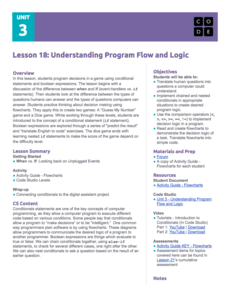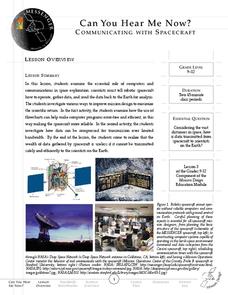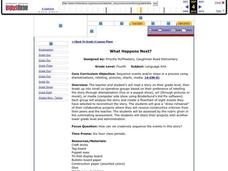Code.org
Understanding Program Flow and Logic
Explore decision-making logic in programming computer games. The 10th installment of a 21-part unit teaches scholars how to apply conditional statements and Boolean expressions. They use these concepts to create a "Guess My Number" game...
Code.org
Introduction to Arrays
How can you store lists in a computer program? The 16th installment of a 21-part unit introduces arrays as a way to store lists within a variable. Individuals program a list of their favorite things—adding interest to the activity.
Code.org
While Loops
Bring your pupils in the loop with while loops. Scholars learn how to modify conditional statements to produce while loops in the 14th instructional activity of the series. They use flowcharts to understand loops and then program...
Messenger Education
Can You Hear Me Now?—Communicating with Spacecraft
Radio signals transmitted to Pluto take five hours to reach their destination! In these two activities, young scientists explore data communication in space. In activity one, pupils learn how data is gathered and sent back to Earth....
Curated OER
What Happens Next?
Fifth graders complete activities to help them sequence events in a story. In this sequencing lesson, 5th graders read a story and work in groups to retell the story by creating a flowchart of events to reconstruct. Students create their...
Curated OER
Dewey and Chemistry: The Water Cycle Revisited
Students undertake a series of experiments related to the water cycle. All experiments use John Dewey's experiential philosophy as their bases. Each instructional activity is clearly based on philosophy and attempts to be relevant.
Curated OER
Throwing It All Away?
Students read a New York Times article as part of their investigation as to what happens when an item is thrown away or recycled. They analyze the relationship between a product's ingredients and its effect on the Earth and healthful...






